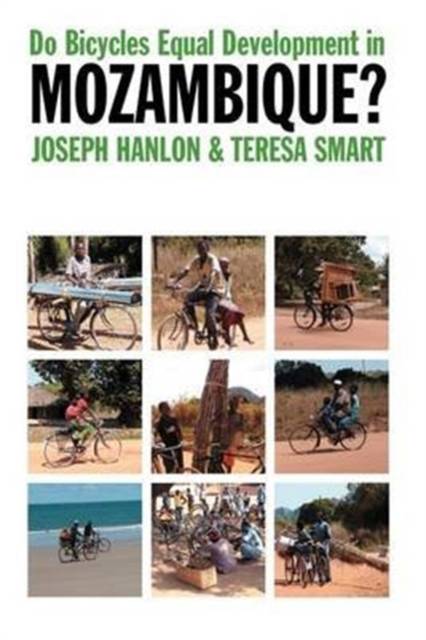
- Afhalen na 1 uur in een winkel met voorraad
- Gratis thuislevering in België vanaf € 30
- Ruim aanbod met 7 miljoen producten
- Afhalen na 1 uur in een winkel met voorraad
- Gratis thuislevering in België vanaf € 30
- Ruim aanbod met 7 miljoen producten
Zoeken
€ 59,95
+ 119 punten
Omschrijving
Is Mozambique an African success story? It has 7 percent a year growth rate and substantial foreign investment. Fifteen years after the war of destabilisation, the peace has held. Mozambique is the donors' model pupil, carefully following their prescriptions and receiving more than a billion dollars a year in aid. The number of bicycles has doubled and this is often cited as the symbol of development. In this book the authors challenge some key assumptions of both the donors and the government and ask questions such as whether there has been too much stress on the Millennium Development Goals, and too little support for economic development; if it makes sense to target the poorest of the poor, or would it be better to target those who create the jobs which will employ the poor; whether there has been too much emphasis on foreign investment and too little on developing domestic capital; and if the private sector really will end poverty, or must there be a stronger role for the state in the economy? This book is about more than Mozambique. Mozambique is an apparent success story that is used to justify the present 'post-Washington consensus' development model. Here, the case of Mozambique is situated within the broader development debate. Joseph Hanlon is Senior Lecturer at the Open University and the author of 'Beggar Your Neighbours'; 'Mozambique: Who Calls the Shots?'; and 'Peace without Profit' (all published by James Currey) which have all made influential interventions in the development debate; Teresa Smart is Director of the London Mathematics Centre, Institute of Education.
Specificaties
Betrokkenen
- Auteur(s):
- Uitgeverij:
Inhoud
- Aantal bladzijden:
- 264
- Taal:
- Engels
Eigenschappen
- Productcode (EAN):
- 9781847013187
- Verschijningsdatum:
- 18/03/2010
- Uitvoering:
- Paperback
- Formaat:
- Trade paperback (VS)
- Afmetingen:
- 152 mm x 226 mm
- Gewicht:
- 408 g

Alleen bij Standaard Boekhandel
+ 119 punten op je klantenkaart van Standaard Boekhandel
Beoordelingen
We publiceren alleen reviews die voldoen aan de voorwaarden voor reviews. Bekijk onze voorwaarden voor reviews.








